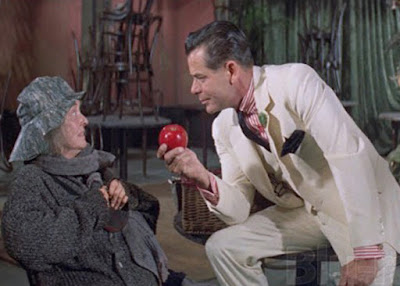~
Today, July 20, is the birthday of
Buddy Knox whose hit
Party Doll, written by him and
Jimmy Bowen, was a major hit when it was released on the
Roulette record label and went to No.1 on the
Cash Box record chart in 1957. It sold over one million copies, and was awarded a
gold disc by the
RIAA.
I remember I was in high school when
Party Doll was released and going to friends' houses for parties and it was one of the songs that HAD to be played and we danced with such glee to it.

While Knox never achieved the same level of artistic success as Holly or
Orbison, he outlived both and enjoyed a long career in music. For his
pioneering contribution, Knox was elected to the
Rockabilly Hall of Fame.
Party Doll was voted one of
The Rock and Roll Hall of Fame's 500 Songs that Shaped Rock and Roll.
In the early 1960s Knox signed with
Liberty Records and released several more mainstream pop records, featuring
string arrangements and
backing vocalists.
Lovey Dovey and
Ling-Ting-Tong were the most notable recordings
from this era. The sound captured on these recordings was a distinct
departure from his earlier rockabilly work for Roulette.
Ling Ting Tong, was recorded by
The Five Keys,
Otis Williams & the Charms,
Bill Haley & the Comets as well as by
Hawkshaw Hawkins.
Knox also did a
cover of the
1957 country/western song,
A White Sport Coat, written by
Marty Robbins (
link below). I loved this song; I even had one I bought for my junior
prom, a white sport coat, that is. Unfortunately, the lyrics all too well fit the event, a long story.

After pressing copies of the record, a
DJ in
Amarillo began playing
Party Doll in 1956 and it soon became a regional hit. After being contacted by
Roulette Records in
New York City,
the song was distributed around the U.S. and became a chart-topping
hit, spending a week at No. 1 on the Top 100 chart, the precursor to the
Billboard Hot 100, in March 1957.
Jerry Allison, drummer for
The Crickets
(who also recorded for Petty at Clovis), stated in an interview that
the drum on
Party Doll (which he said was played on a cardboard box) was
the inspiration for the drum sound he used for
Not Fade Away.

45 RPM label detail
detail photo by Styrous®
Knox was born in 1933 in the tiny farming community of
Happy, Texas, where, in 1948, when he was fifteen, he wrote the original verses of
Party Doll behind a haystack on his family farm. Knox's sister and two of her friends, Iraene Potts of
Amarillo and a neighbor, sang background vocals on the song.
photographer unknown
He learned to play the
guitar
in his youth and in his teens, he and some high school friends formed a
band called the "Rhythm Orchids".
photographer unknown
After they performed on the same 1956
radio show as fellow Texan
Roy Orbison and his "Teen Kings" band, Orbison suggested that Knox go to
record producer Norman Petty, who had a recording studio in
Clovis, New Mexico, the same studio where
Buddy Holly recorded several of his early hits, including
That'll Be the Day.
There's a great video of his Swingin' Daddy on YouTube (
link below); it's fun to watch the fashion and dance moves from this 1958 television broadcast.

photographer unknown
Trading card photo of Buddy
Knox. In 1957, Topps gum cards issued a series of movie stars,
television stars and recording stars. He was part of their recording
stars cards.
Viewfinder links:
Net links:
YouTube links:
“Life without music would be a mistake.”
~ Buddy Knox






















